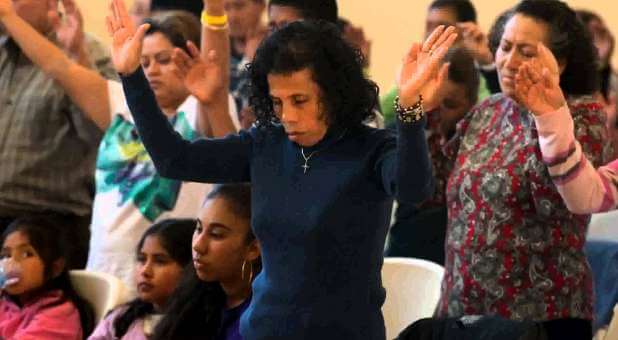The Charismatic Renewal began less than 10 years before Charisma first published in 1975. In fact, we get the name Charismatic Renewal from the Catholics who, when they received the Baptism of the Holy Spirit at Duquesne University in Pittsburgh and later at Notre Dame in South Bend, were called “neo-Pentecostals.”
Apparently someone didn’t like that term and, so, they referred to the movement as “renewal” of the charismata, which, in Greek, means gifts in the plural. So, Charismatic comes from the word charismata rather than the word charisma (which is the singular form).
The name stuck, and now most Pentecostals use it interchangeably with the word Pentecostal.
The Catholics who experienced God’s power believe that it was an outgrowth of when Pope John XXIII invited “a new Pentecost” at Vatican II in 1962. Few things have changed the Catholic Church as much in our lifetime as the Charismatic Renewal. By 2013, according to Catholic World Report, some 160 million worldwide had received the experience called the Baptism of the Holy Spirit, which almost always accompanied a renewed love for Christ and fervency about serving God and serving the church.
In the early days of Charisma, we covered the charismatic movement a great deal. On our charismamag.com site, we are republishing some of those early articles about the move of the Spirit, not only among Catholics but other groups too. You can read a couple of those articles titled, “A Classic Pentecostal Encounters Charismatic Catholics,” and “Charismatic Renewal: The Conference ‘Heard Around the World.’“
The Catholics always saw their movement as “ecumenical,” and they interacted with the Protestant charismatics and Pentecostals on the basis that the Pope had encouraged ecumenical dialogue.
In fact, I have had some people tell me that while top denominational leaders engage in ecumenical talks with other leaders, the only real grass-roots ecumenical movement in the world is the charismatic renewal.
As time passed, it seemed that Catholic charismatics became more Catholic and less charismatic. I could be wrong, but I have had some friends who have expressed that opinion to me, and that has been my observation. The huge conferences Catholic charismatics held back in that era are no more and the smaller conferences that are still held have a relatively low profile. No real large parachurch-type ministries have emerged like in the Protestant charismatic movement. For example, there are no large parachurch television ministries and so forth.
This is not to say that the Spirit is not at work or that the Catholic charismatic movement has dwindled or died. In a way, that notion somewhat parallels Full Gospel Businessmen, which has declined a great deal in the United States but taken off worldwide. The same thing holds true for the charismatic movement in the Catholic Church.
Bert Ghezzi, a graduate student who came from the Pittsburgh area but was studying at Notre Dame, worked as one of my editors for a number of years. During this era, he may have been the link between Pittsburgh and Notre Dame. Much of what I know about the charismatic movement I know from Bert and my interaction with him. He did a great job as an editor and is one of the most ecumenical people I’ve ever known. He retired a number of years ago and I still miss him.
Bert recently made these observations to me in an email about the Catholic Charismatic Renewal:
“The Catholic Charismatic Renewal has slowed in the U.S., but continues to grow in Latin America. It slowed when bishops tended to make prayer groups into parish organizations (instead of the freewheeling groups of the early days). … Observe that many Catholic Charismatics have followed the leadings of the Spirit into a wide variety of services: caring for the poor, religious education of the young and adults, evangelization and so on. Although EWTN is not a charismatic network, it began with Mother Angelica, a charismatic nun, and is now a worldwide media conglomerate.”
You can check out Bert’s blog titled, “Praying in the Spirit” at bertghezzi.com.
I would be interested in feedback from Catholic charismatics who read this to see if you agree with my observations. Also, please check out the links to the articles that we’re publishing. I believe you will enjoy reading them and reminiscing. I also think they are still interesting and pertinent after all these years.
Steve Strang is the founder and publisher of Charisma. Follow him on Twitter @sstrang or Facebook (stephenestrang).
















































